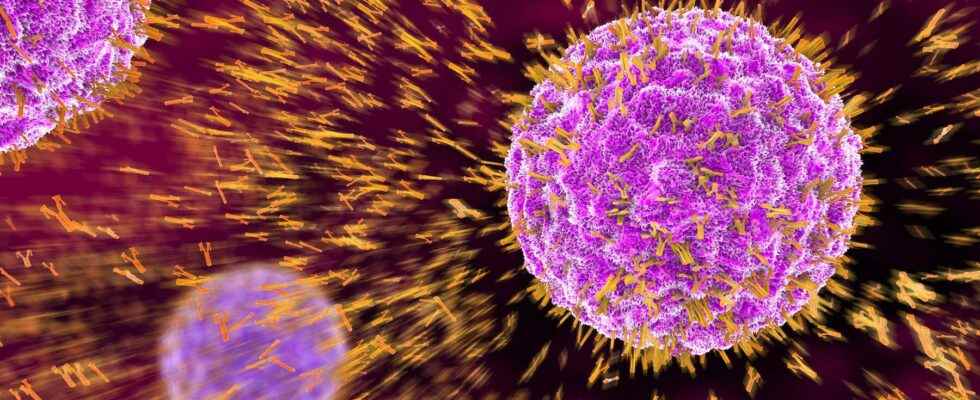The emergence of new variants of SARS-CoV-2 increases the risk of reinfection. MIT researchers have identified several immunological markers to differentiate an infection from a reinfection after a simple blood test.
You will also be interested
[EN VIDÉO] Are we protected against Covid by having been infected? A coronavirus infection induces an acquired immune response. But for how long is it effective against variants?
The new variants of SARS-CoV-2 bring with them a risk that seemed limited at the start of the pandemic, that of reinfection. The progressive disappearance of immunity allows a new variant to infect a person who has already been infected a few months earlier. MIT scientists have identified immunological markers, detectable after a blood test, which make it possible to quickly distinguish reinfections from primary infections. They publish their results in mBio.
Antibodies specific to reinfections as markers
The first part of their research was done on rhesus macaques who, infected with Covid-19, present a immune response close to that of humans. The monkeys were infected several times with the same strain of SARS-CoV-2, but at different doses for five weeks. During the process, the scientists took blood samples from the animals to follow the evolution antibodies and identify which are specific to reinfection.
IgG1 antibodies directed against the protein S and nucleocapsid increase after a reinfection with the animals. It remains to be seen whether this observation is similar in humans. For this, 4,469 people working for Space X volunteered, 324 were infected with the virus and 9 were reinfection cases. Analysis of the immune response of volunteers confirms what was observed in monkeys. IgG1 against several parts of the S protein (the RBD, S1 and S2) but also IgG3 against the RBD increase significantly after reinfection with SARS-CoV-2, contrary to what is observed after a primary infection.
The search for these biological markers in the blood of infected persons could make it possible to differentiate a primary infection from a reinfection, especially since the same variant is detected during screening. ” Our ability to monitor and control both infection and reinfection relies on the development of simple and immunologically robust screening strategies “, note the authors of the study. The analysis of these antibodies could be one of them.
Interested in what you just read?
